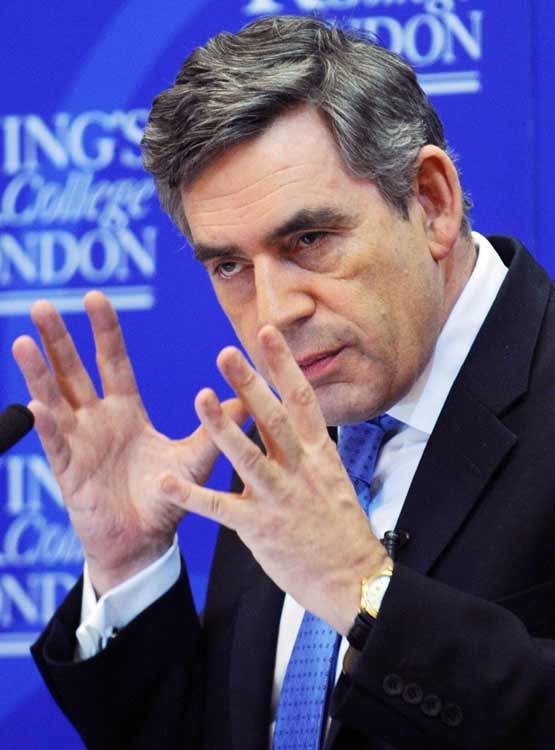Doctors criticise PM's prescription for the NHS

The Prime Minister continued his attempted fightback yesterday by making a keynote speech on health policy to mark this year's 60th anniversary of the NHS. He promised to turn it into a "personal and preventive" service and raised the prospect of a voucher-style system of "personal health budgets" giving people control over how to spend NHS money allocated to them.
Officials said that initially this would apply to people with long-term conditions, giving them more flexibility by breaking down artificial barriers between health and social services. Mr Brown said technology could help more people stay at home during treatment, monitor their progress and keep in contact with doctors via telephone and the internet. Mr Brown announced a major new screening programme through GP surgeries for heart and kidney disease, cancer, strokes and diabetes by 2011. He said: "There are 200,000 deaths a year from heart and stroke disease, many of them, probably most of them, avoidable if we did the right things."
Men aged over 65 would be offered an ultrasound test to detect early abdominal aortic aneurysm, the weakening of the main artery from heart to abdomen which kills more than 3,000 men a year. Mr Brown said this would eventually save more than 1,600 lives annually. There would also be extended screening for breast cancer for women and preventive vaccines against cervical cancer.
"The whole nature of this is that the health service has really got to change in its next 60 years from being the curative service where it's done so much good to being also a preventive service and one that's not simply a uniform service, but personal to people's needs," he said. Doctors expressed scepticism after the announcement. Experts said the plan to introduce screening for early signs of heart disease, stroke, diabetes and kidney disease risked doing more harm than good, and would divert resources from more pressing priorities.
Michael Baum, professor emeritus of surgery at University College London, and a long-time critic of the breast screening programme, said: "If all the money spent on screening was used to build cycle paths and encourage kids to play in the open and do something radical on smoking it would do more for society's health than all these programmes put together."
Dr Richard Vautrey, the deputy chairman of the GPs' committee at the British Medical Association, said: "What I do find extraordinary is just two or three weeks ago the Prime Minister insisted that funding be taken away from the treatment of patients with heart failure, hardening of the arteries and kidney disease, the very conditions that he's now proposing to screen for."
The "opportunity cost" of screening had to be taken into account, he said. "If I were given the 55m a year it costs to run the breast screening programme to improve the treatment for breast cancer patients, I could save more lives".
Professor Peter Weissberg, medical director of the British Heart Foundation, said doctors had wanted screening programmes introduced for vascular disease for many years.
Join our commenting forum
Join thought-provoking conversations, follow other Independent readers and see their replies
Comments